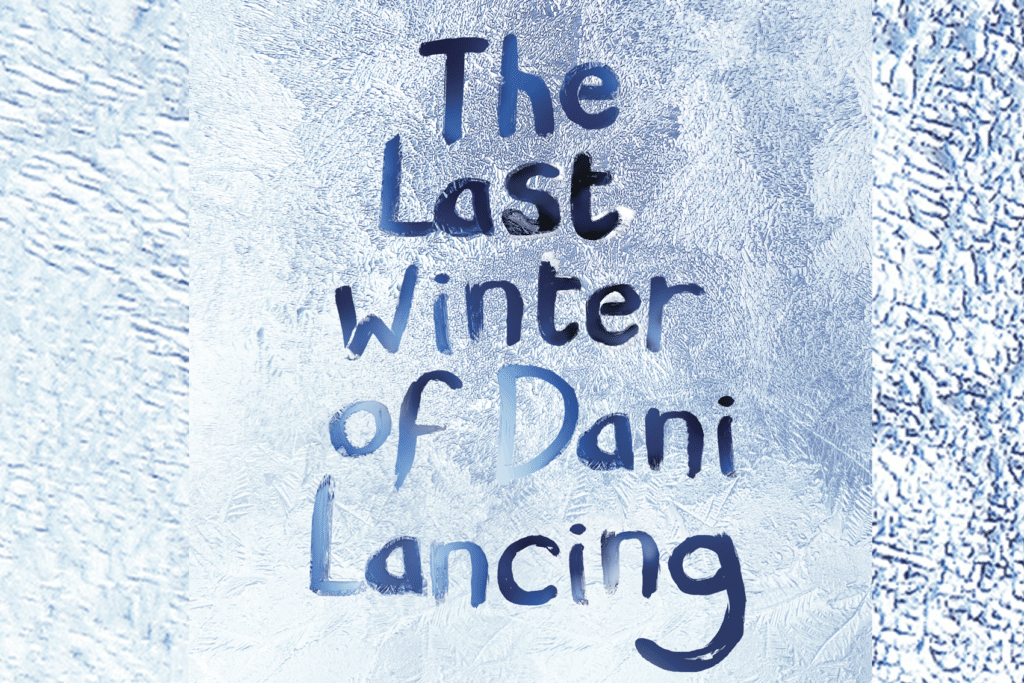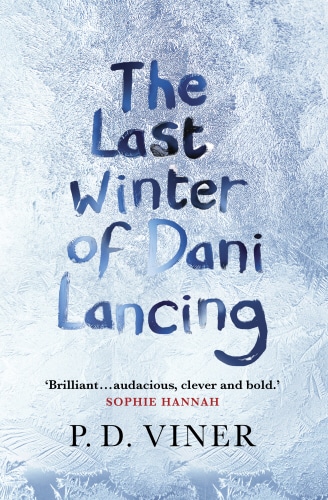Features
‘In the Dock’ with P D Viner
Debut author P D Viner is in the dock this week – talking exclusively to Dead Good about his ideas, research and loving his local library!
Who or what was the inspiration for The Last Winter of Dani Lancing?
I began writing The Last Winter of Dani Lancing after two major life-changing incidents: I had become a father for the first time and my business had collapsed. Being a dad was amazing but I found myself thinking about what I would do if my daughter were threatened, how I could really hurt someone if they hurt her… how I could actually kill someone if it would save her. Or revenge her. Then the financial crisis wiped away my little audiobook business and I suddenly had a lot more time on my hands and a real desire to be creative… to write. Under my bed I had a box of rejection letters, two novels and loads of short stories covered in red pen but… could I try again to write a publishable novel? Yes. I told myself I would give myself two years to write. But what? The first inspiration for the novel came from reading the Brothers Grimm. I read two stories back-to-back that featured a murder, and as the body was hidden three drops of blood fell to the floor and those drops screamed blue murder. I thought these drops, bearing witness to their own deaths, was like modern DNA profiling – the way our genetic signature is ingrained in every particle of our being. I loved that idea and immediately envisioned an older woman (65), taking a blood sample by force from the man, she believes, had killed her daughter. The idea of this woman hollowed out by grief and yet still so full of rage, twenty years after the crime, made me buzz.
Dani Lancing is an enchanting character – what came first, her character or her story?
The story began with her mother, Patty, and I wrote from her perspective for quite some time, but it was exhausting to be in Patty’s mind as she was so brittle and full of anger. So, before I knew who Dani was, I had the set-up and knew she had been murdered twenty years previously… then it was time to create the character of Dani. Patty was so abrasive that I wanted Dani to be vibrant and funny and so full of life. I wanted her to be gentle with her dad and to be open and vulnerable. I wanted her to be a young woman, to be experimenting with smoking, drinking and sex, to be confused about life but hopeful and excited… to be real. Once I had created her character it felt really tough to put her back into the frame of the story – to snuff out her life before she really got to live it. I am sorry that I murdered Dani Lancing… but I had to do it.
London and Durham are central to the novel. What made you choose these locations, and how much research did you have to do on them?
I was born and grew up in London. I lived most of my early life in South West London, on a housing estate (you can see my block of flats in the movie of Fahrenheit 451). For the novel though, I chose a section of London that I didn’t know very well to base Jim and Patty in: Greenwich. I chose the area because of the visuals – which must sound odd for a novelist – but if you stand at the royal observatory on the crest of a hill and look down at the sweep of the park, to the Thames, London is laid out before you. It is the best view of London and a magnificent back-drop for Dani’s story. My favourite scene in the book is Christmas Day, when Jim and Patty dance in the park, so close to the meridian and the birthplace of time, while London sprawls before them and fireworks explode over their heads. It places the novel so vividly, giving both a great sense of physical space, but also of history. I had visited the Cutty Sark as a child and taken a school trip to the maritime museum but in researching the book I spent a few days walking in the town and was lucky enough to be shown around the observatory by one of the astronomers there and see behind the scenes. I even got to hear about the ghosts. The observatory will feature again in my next book, The Summer of Ghosts.
Once I had decided that Dani was murdered while she was away from her parents at University, I decided I wanted her to go to a top school just below Oxford and Cambridge – because she had failed to gain entrance there. So, even though she was going to a top university, she felt she was a failure and it made her vulnerable. I considered Edinburgh, which is a city I love, but another writer suggested Durham. I had been there many years before and remembered liking the place so I went there and thought it was perfect. Again I was swept away by the visuals of the city, it is gorgeous with the Cathedral at the top and everything else corkscrews down. I loved the market and had to set a scene there but once I entered the cathedral I knew the final scenes of the novel had to be there. It is an amazing building and the incredible wooden driftwood sculptures of Mary and Jesus are there and look so beautiful and creepy at the same time. In total I spent 5 days in Durham over two trips. I took photos and little movies everywhere I went so that I could revisit my trip afterwards and (hopefully) write visually enticing and more-or-less accurate portraits of the city.
Does your writing ever scare you?
I produced the audiobook of The Last Winter of Dani Lancing and directed a full cast of actors. Listening to Michael Maloney, Lucy Robinson and Steven Elder read Jim, Patty and Tom was amazing but sometimes I squirmed. Hearing their beautiful voices carry such anguish and bile was much worse than hearing the words in my head. It is fairly easy to read: Patty screams in pain. But to hear a great actress scream and sob, tears into your gut. While I was editing the scenes I had to wear headphones in the house so my daughter couldn’t hear any of it as I think it would have given her nightmares. None of my writing is excessively violent or really gory but I do write about what sits in the dark places of our minds and in our guts and how we are affected by violence – and listening to the audio has made me think a few times: P. D. Viner, you are a sick puppy.
Where do you write your novels?
I mostly write in coffee shops. I like the buzz of people around me and I am lucky as, In Brighton, there are so many lovely places. Research is a different matter, and for that I go to the library. And our local library is amazing and has a coffee shop in it… so best of both worlds.
Which crime fiction related book, TV programme or film has had the most impact on you or your writing?
When I was thirteen or fourteen I had a run of reading that totally made me love books. I had always read, but a lot of that had been the target Dr Who books, which were fun but not great literature. But I remember that after my Dad left us (when I was thirteen) that I decided I was now grown up and it was time to read adult books. Back-to-back I read The Catcher in the Rye (my Dad’s favourite book) The heart is a lonely hunter and Marathon Man. All three have stayed with me and influenced the writer I am, but it was the last of the three – a thriller masterpiece that I would point to as the crime book to most influence me. It taught me the art of the reveal. I was in the playground of my school, reading while other boys played football when…the truth about Janey was revealed. I was gobsmacked. It was a visceral dig to the belly. In one sentence the whole book was turned on its head by a piece of information that we had seen in plain sight – but had not understood. Janey was… no I won’t tell you. Read it. The film is rubbish compared to the book.
What is your favourite scene or line from any crime fiction book?
I grew up reading Raymond Chandler’s Philip Marlowe novels. They are all wonderful but this is my pick: the final scene from The Long Goodbye. In the novel Philip Marlowe spends the whole time defending his old friend Terry Lennox, only to discover that his friend was guilty and used him as a patsy. I love the way Chandler reveals the truth and that Marlowe lets the betrayal go… he lets Terry Lennox get clean away because they were once friends. It is such a bittersweet ending… in the novel. BUT the reason I chose this scene is because the novel was written in 1953, but twenty years later Robert Altman filmed it and in his version, when Marlowe discovers he has been played by his old friend, he shoots him. It is the antithesis of Chandler’s ending. And it works brilliantly too.
What tip would you give any budding writers?
Write. Get an idea from somewhere – I think opening a book at random and reading a line is great, but get an idea – buy an idea – rent an idea, and then write. A book is 80,000 – 120,000 words and that takes a lot of time and effort. So write. Just keep writing, something will emerge.
At Dead Good we’re passionate about working with Libraries, what is it for you, that makes libraries so special?
Since my daughter’s birth the library has been like a second home, because they are not just repositories of books and DVDs. Our library has weekly baby boogie and story time, homework club and a teenage room. We have seen plays there and film screenings, even concerts. It is a community hub that brings people together in a way that no other place can. I do my research in the library and meet friends there and then there’s the books, audiobooks, DVDs, CDs and graphic novels. And the mobile library, it brings books to you. Wow.
Ebook or paper?
My wife accused me of being fetishistic about books (I was buying a second copy of The world according to Garp) – so you would guess I would opt for paper, but actually, as I get older I find I want a less cluttered house. So if a book is special to me, I want a physical copy, and some books need to be owned as they are so beautiful. But most books I would only read once and don’t need to own so Ebooks are great for that.
If you were a fictional character, how would you write your own death?
Sacrificing myself to save a school of children… and kittens.
And what would your last meal be?
I would drink champagne and eat really good Indian food.



Please note: Moderation is enabled and may delay your comment being posted. There is no need to resubmit your comment. By posting a comment you are agreeing to the website Terms of Use.